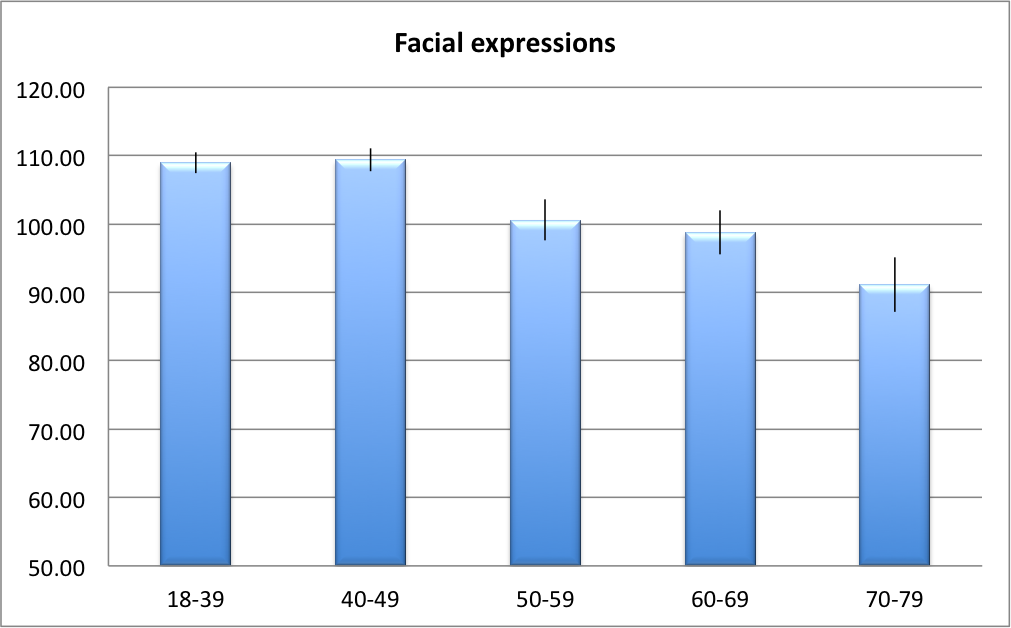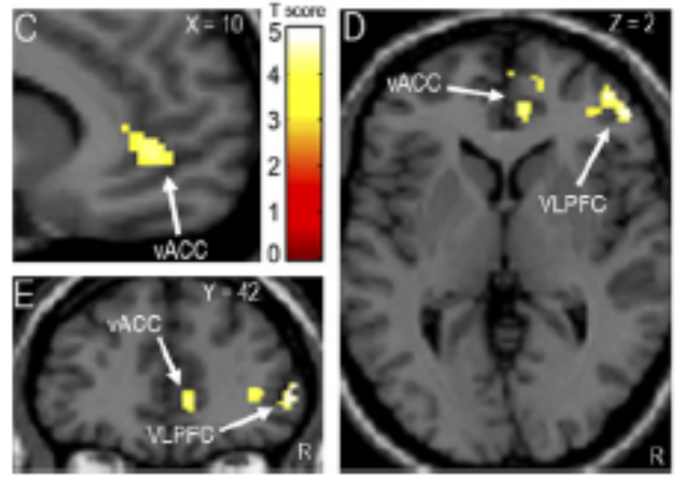The ability to regulate our emotions and recognise the emotional state of others is fundamental to every social interaction and how we view ourselves and others. Moreover, emotions interact reciprocally with other mental processes, such as attention and memory, reprioritising cognitive and physical resources. Brain systems supporting the generation and regulation of emotion involve extensive cortical and subcortical networks including prefrontal cortex (PFC), amygdala, insula, and ventral striatum. Despite evidence that PFC integrity is differentially impaired with normal ageing, the effect on emotional processing is not uniform. Older adults appear to maintain or even improve their ability to regulate their own emotional state, but there are age-related declines in the ability to recognize specific emotional states in others. This pattern suggests that despite loss of neural integrity in PFC, ageing is accompanied by functional reorganisation that supports emotional regulation but fails to maintain emotion recognition.
As part of the Cam-CAN project, we will investigate changes in emotion function across the lifespan using 3 tasks. The first assesses core emotional responsivity and its regulation, the second, recognition of emotion in others, and the third the influence of emotional material on memory. Moreover, we will gather fMRI data that will allow us to examine a range of hypotheses concerning shifts in patterns of brain activation and connectivity in regions associated with emotion reactivity/regulation across age.
Current investigations

Current behavioural examinations focus on 3 main tasks: emotional memory, emotion regulation, and face recognition. For a discussion of the emotional memory task see the memory page.
Emotional regulation : Previous research suggests that emotional regulation does decline and may improve with age. In the Cam-CAN project participants complete a task in which they regulate their emotional responses to both negative and positive film clips. In keeping with previous research, older adults do not report being more positively or negatively affected by the emotional films.
Face recognition : The human face is central to social interaction and is the primary cue to a person’s identity, emotional state and multiple other social characteristics. A number of aspects of facial recognition are under examination including the ability to recognize facial expression and facial identity. Current behavioural data suggest that facial expression recognition declines with increasing age:

Future stages will employ a functional neuroimaging study addressing how affective connectivity between the amygdala and areas of medial prefontal cortex involved in facial expression processing changes with age. See the figure below for regions of prefrontal cortex that are coupled with the amygdala. Pilot studies are currently underway to assess the optimal fMRI paradigm for use with younger and older participants.

 Cambridge Centre for Ageing and Neuroscience
Cambridge Centre for Ageing and Neuroscience